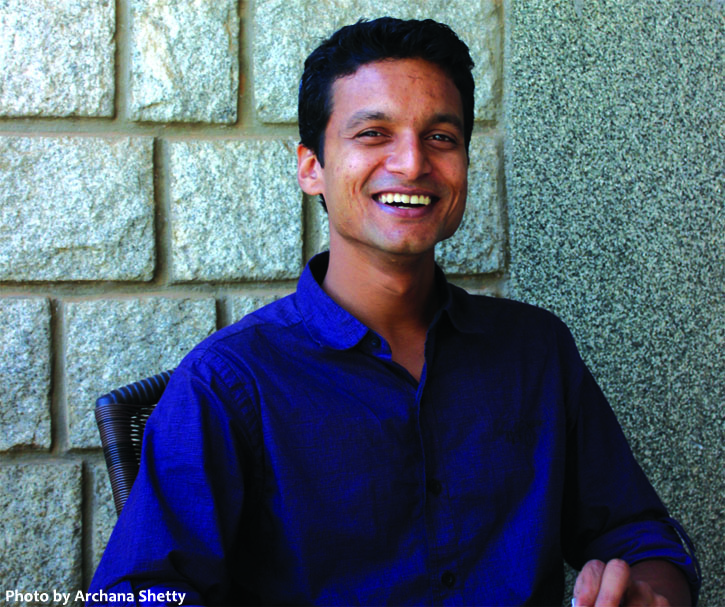NCBS alumnus wins 2013 Southwood Prize
Kulbhushansingh Suryawanshi, alumnus of NCBS's Post Graduate Program in Wildlife Biology and Conservation, has won the 2013 Southwood Prize. His article "People, predators and perceptions: patterns of livestock depredation by snow leopards and wolves" has been selected as the best paper by a young author in the Journal of Applied Ecology as a part of the British Ecology Society's annual award selection.
The Southwood Prize is awarded in memory of Sir Richard Edmund Southwood, a Professor of Zoology at the University of Oxford. The annual competition carries a cash award and a year's membership to the British Ecological Society (BES). Kulbhushan will present his work at the annual meeting of the BES at Lille in France later this year. "There is a lot of literature on human-wildlife conflict, but the careful and thorough interdisciplinary approach taken to the issue by Dr. Suryawanshi and his colleagues is still far too rare," say the journal editors who judged the award.
Surywanshi's award-winning work focuses on human-animal conflicts in the Himalaya's Upper Spiti region in Himachal Pradesh. The locals of Spiti have to live with neighbours such as snow leopards and wolves: a hazardous co-existence, where people retaliate by killing the carnivores that prey on livestock. The pastoralists argue that encroaching carnivores affect their only source of livelihood and economic sustainability, forcing them to resort to extreme measures. Suryawanshi's work emphasises on a solution to such retaliatory killings of snow leopards and wolves by these pastoralists who depend on livestock such as horses, yak, goats and sheep.
Resulting retaliatory killings affect the snow leopard, a rare carnivore classified as globally endangered by the International Union for Conservation of Nature. In their attempt to consider the arguments of both sides, the scientists offer realistic solutions that attempt to bridge the divide between wildlife protection and livelihood rights. They explore in detail the reasons for livestock predation by snow leopards and the mismatch between local perceptions and reality. Contrary to expectations, the scientists report that we can expect an increase in livestock predation by snow leopards, along with an increase in wild prey population. Programmes to increase wild prey population, therefore, should also afford better protection to livestock and adequate compensation in cases of livestock depredation. This work is a step forward in his ongoing work on finding ways to minimize human- wildlife conflict in the high altitude areas of the Himalaya.
This paper is part of Suryawanshi's doctoral research which he completed with the Nature Conservation Foundation (NCF) and Manipal University. Renowned ecologists Charudutt Mishra, Yash Veer Bhatnagar, NCBS's Uma Ramakrishnan and Stephan Redpath were his advisors. Currently a Regional Ecologist with the International Snow leopard Trust and an affiliate with the NCF, Suryawanshi is happy with this recognition of his research. "The different disciplines of social-sciences, economics and ecology have to inform conservation for it to succeed. I am happy to be contributing in this direction."
Suryawanshi is an alumnus of the second batch (2006-2008) of the Master's Program in Wildlife Biology and Conservation. The course, which is a collaboration between NCBS and the Centre for Wildlife Studies and its international partner, the Wildlife Conservation Society, is the first of its kind in India. This multidisciplinary academic program aims to train a cadre of wildlife biologists for research and conservation of wildlife and wild habitats in India. The course has so far trained seventy-five students. Alumni of the course engage with research and conservation of wildlife and wild lands in more than twenty states across India. Course director Dr. Ajith Kumar opines that the real success of the course depends on the impact that the graduates make in the long run, an asset evident in Suryawanshi's case.

Comments
Post new comment